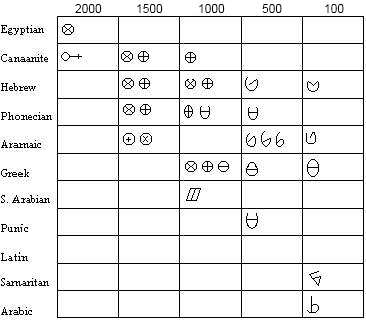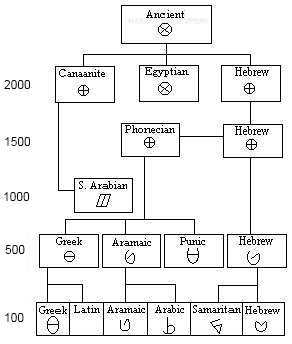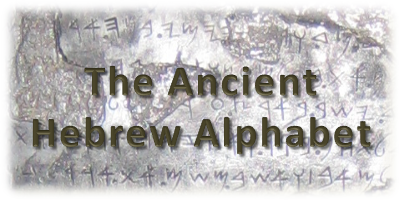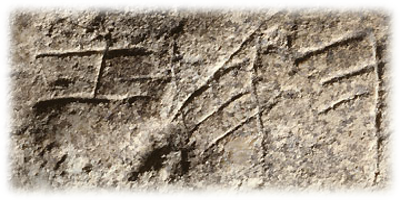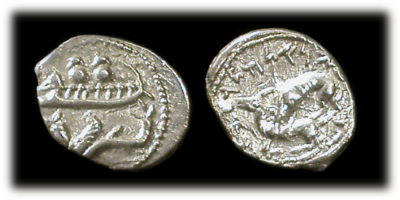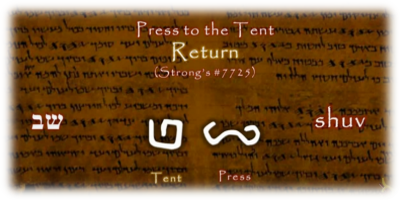History & Reconstruction
The original pictograph for this letter is  , a container made of wicker or clay. Containers were a very important item among the nomadic Hebrews. They were used for storing grains, tools, foods, housewares and other items. Wicker baskets were used as nets for catching fish. The meanings of this letter are basket, contain, store and clay.
, a container made of wicker or clay. Containers were a very important item among the nomadic Hebrews. They were used for storing grains, tools, foods, housewares and other items. Wicker baskets were used as nets for catching fish. The meanings of this letter are basket, contain, store and clay.
The twenty-second letter of the Hebrew alphabet is a tav, with a "t" sound. It is unlikely that the original Hebrew had two letters with the same sound. When the Greeks adopted the Hebrew alphabet this letter became the Greek theta. It is likely that the original sound for this letter was a "th," as adopted by the Greeks.
The Modern Hebrew name for this letter is tet, but probably originally pronounced thet, which means "mud" or "clay," materials used to make baskets.
The Early Semitic letter  remained unchanged into the Middle Semitic script, but became
remained unchanged into the Middle Semitic script, but became  in the Late Semitic script. The Late Semitic letter became the Θ (Theta) in the Greek alphabet, the Modern Hebrew ט and our number 6.
in the Late Semitic script. The Late Semitic letter became the Θ (Theta) in the Greek alphabet, the Modern Hebrew ט and our number 6.
 , a container made of wicker or clay. Containers were a very important item among the nomadic Hebrews. They were used for storing grains, tools, foods, housewares and other items. Wicker baskets were used as nets for catching fish. The meanings of this letter are basket, contain, store and clay.
, a container made of wicker or clay. Containers were a very important item among the nomadic Hebrews. They were used for storing grains, tools, foods, housewares and other items. Wicker baskets were used as nets for catching fish. The meanings of this letter are basket, contain, store and clay.
 remained unchanged into the Middle Semitic script, but became
remained unchanged into the Middle Semitic script, but became  in the Late Semitic script. The Late Semitic letter became the Θ (Theta) in the Greek alphabet, the Modern Hebrew ט and our number 6.
in the Late Semitic script. The Late Semitic letter became the Θ (Theta) in the Greek alphabet, the Modern Hebrew ט and our number 6.
